It's safe to say that 2022 has been a big year for news, from the war in Ukraine to the UK's carousel of Prime Ministers, there has been an awful lot going on.
But what have been the big hitting stories in the horticulture world?
Biggest news stories of 2022
Peter Seabrook dies at the age of 86
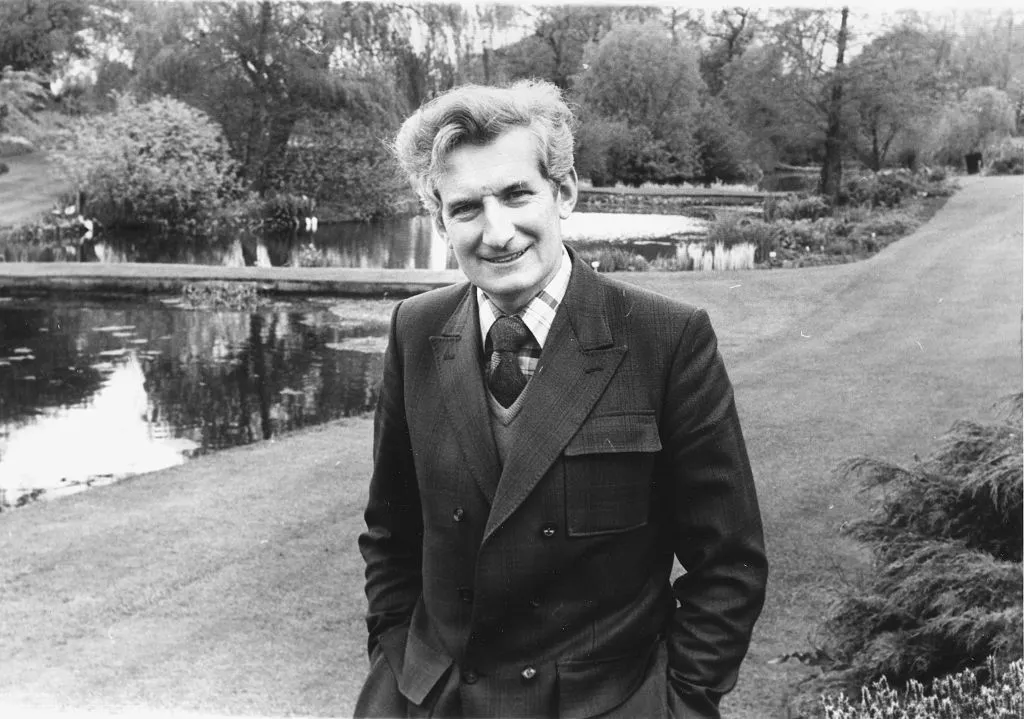
The year kicked off on a rather sad note with news of the death of Peter Seabrook MBE, aged 86. He was a very influential figure in the industry, having studied at Writtle College in Essex before joining the BBC as a broadcaster in 1965. He made regular television appearances, was a well-known face at industry events and continued working as a gardening columnist up until his death.
A snowdrop sells for a record-breaking price
In February, we saw a record-breaking sale in the world of galanthophiles (snowdrop obsessives). A bulb of the new snowdrop Galanthus plicatus 'Golden Tears', sold for an eye-watering £1,850 at auction. The new plant was bred by Joe Sharman of Monksilver Nursery, who previously broke records in 2015 with another of his introductions, 'Golden Fleece', which sold for £1,390 and was bred over the course of a decade.
The RHS appoints a new Director General

In the autumn of 2021 it was announced that Sue Biggs CBE would retire from her role as Director General of the RHS in 2022. In March of this year, the RHS announced the appointment of Clare Matterson CBE as the new Director General, coming from the Natural History Museum where she was the executive director.
The change in leadership wasn't the only shift at the RHS this year. The organisation has been moving focus to more sustainable practices for the last few years and appointed a new role of Senior Ecologist this autumn.
Ban on metaldehyde enforced
As of March this year, the RHS stopped classing slugs as a pest and now list them under 'biodiversity' on their website. This is indicative of a wider trend in the horticulture industry of working with rather than against nature. A big win for the environment this year was the enforcement in the ban of the slug killer metaldehyde in April.
The pellets cause significant harm to wildlife and although the ban was announced in 2019, it has only just been enforced and it is now illegal to sell metaldehyde products.
For those of you still struggling with slugs, Poppy Okocha provided us with some tips on organic slug controls
Rewilding garden wins Best in Show at Chelsea
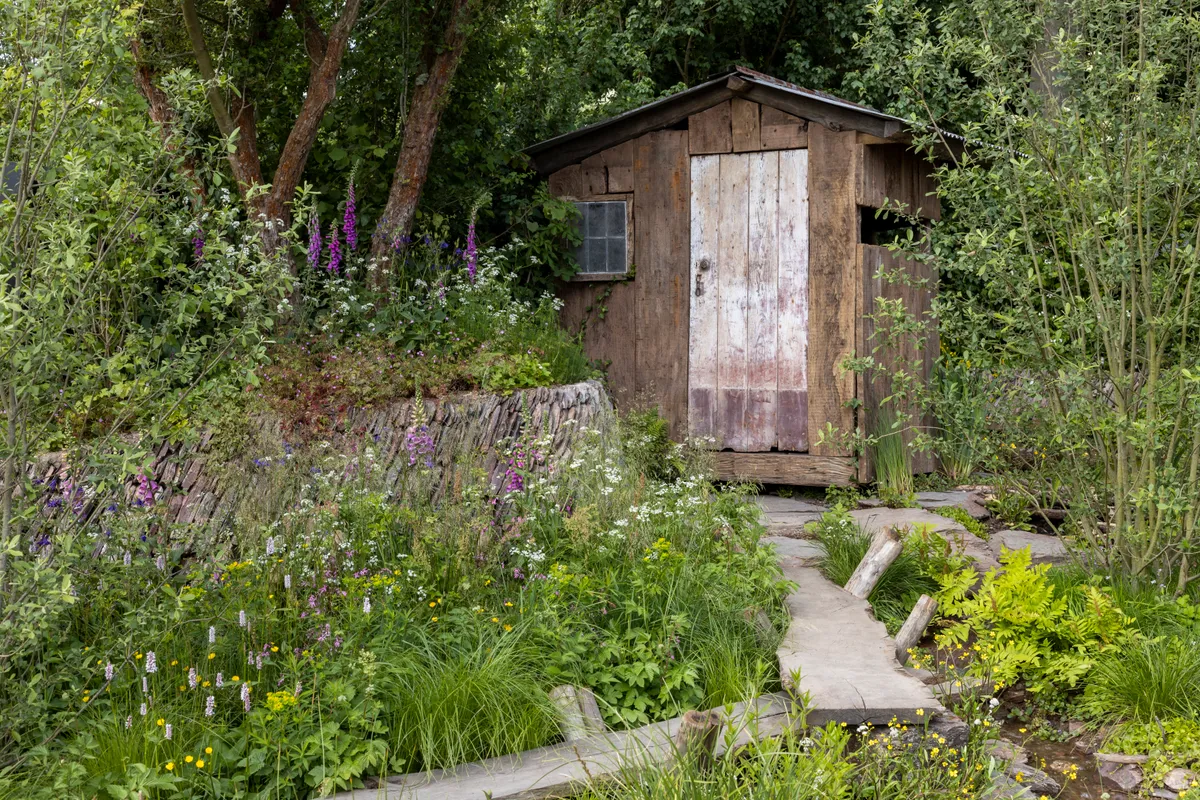
A Rewilding Britain Landscape won Best in Show at the RHS Chelsea Flower Show this May. Designed by Urquhart and Hunt, the garden celebrated the transformation of land through the reintroduction of beavers.
James Alexander Sinclair, the Chair of Judges, said "In the end, all the judges were captivated by the skill, endeavour and charm of A Rewilding Britain Landscape - every step is exquisite". The win is indicative of the trend within the industry to care for the natural world.
The People's Choice Award was won by the Perennial Garden 'With Love' by Richard Miers, and the full list of medals can be found here.
The Tower of London is surrounded by 'Superbloom'
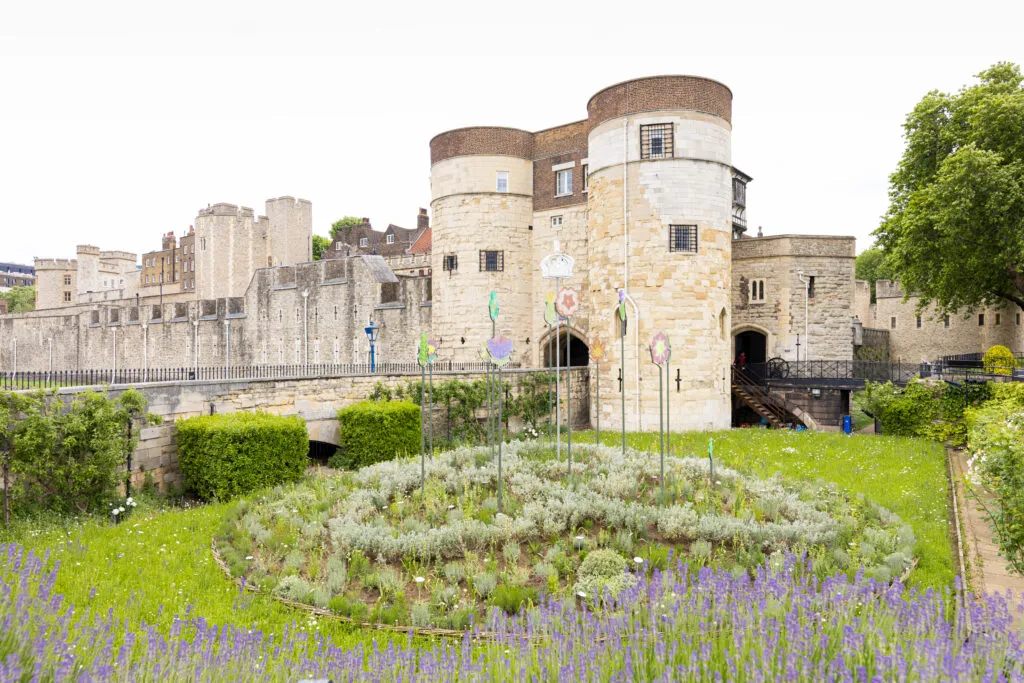
Marking Queen Elizabeth II's Platinum Jubilee, June saw the moat around the Tower of London transformed into a floral display and wildlife haven in the form of 'Superbloom', with flowers selected by Nigel Dunnett to provide a rich source of nectar for pollinators.
Earlier in the year, over 20 million seeds were sown in the moat, designed to develop sweeping waves of colour throughout the summer. Wildflowers including red poppies and blue cornflowers appeared alongside sunflowers, cosmos and rudbekias.
Sky-high temperatures test UK gardens
In July, Britain was swept by a heatwave of unprecedented levels. The 19 July saw some of the highest temperatures in gardens, with Kew recording 34.6C. That same day, temperatures of 40.2C were recorded at Heathrow, the highest temperature in the UK since records began.
This led to increasing concerns over our changing climate and what this would mean for gardeners in years to come. Water saving methods will become even more vital with hotter summers, as will the use of drought tolerant plants.
Boom in Large blue butterflies despite worrying decline of other species
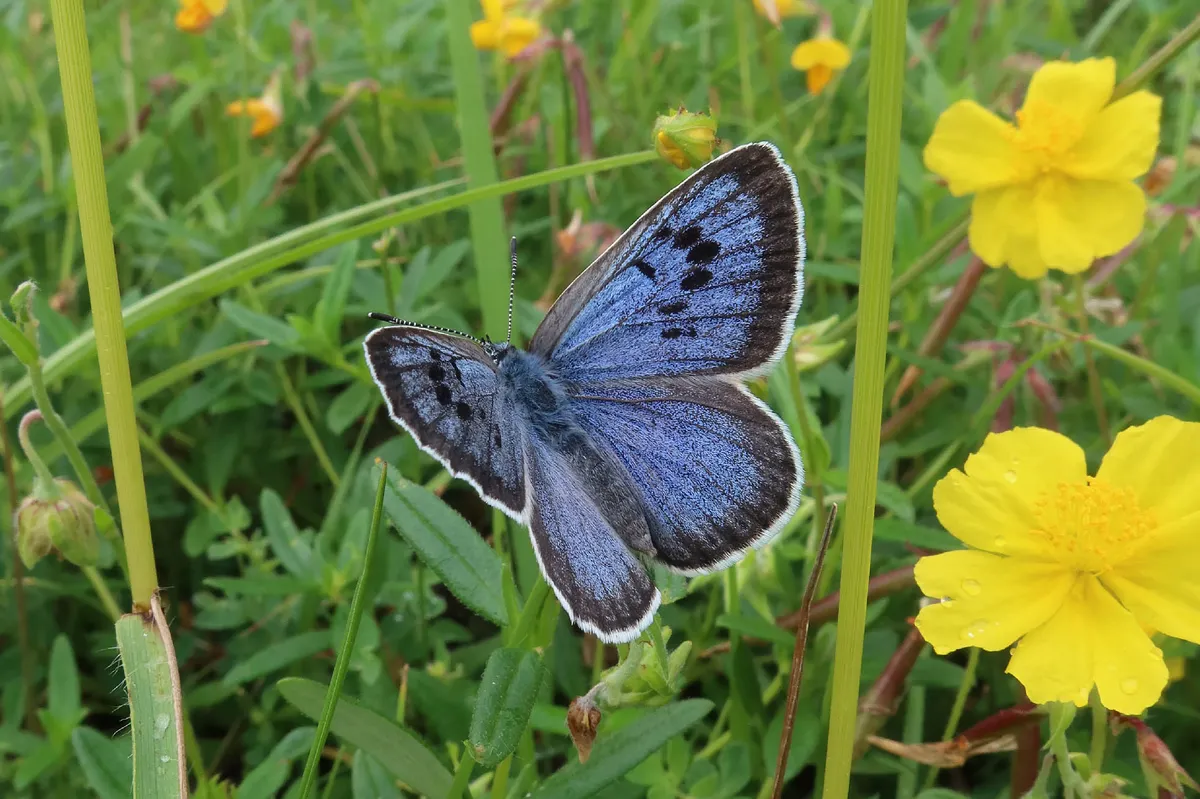
Following conservation efforts, Large blue butterflies were recorded breeding at the highest levels for 150 years this August. Declared extinct in the UK in 1979, this was a huge milestone for David Simcox and Sarah Meredith from the Royal Entomological Society who have overseen the restoration project of areas of their natural habitat.
Results from data collected during 2021's No Mow May campaign showed that a less managed approach to lawns was beneficial to biodiversity. However, although more people than ever took part in No Mow May, butterflies in Britain are still in an overall decline.
The Big Butterfly Count, which takes place between July and August every year, received 100,000 counts this year and on average only 9 butterflies were spotted per entry. This was an all-time low in the 13 years the project has been running.
A gardener King at Britain's helm
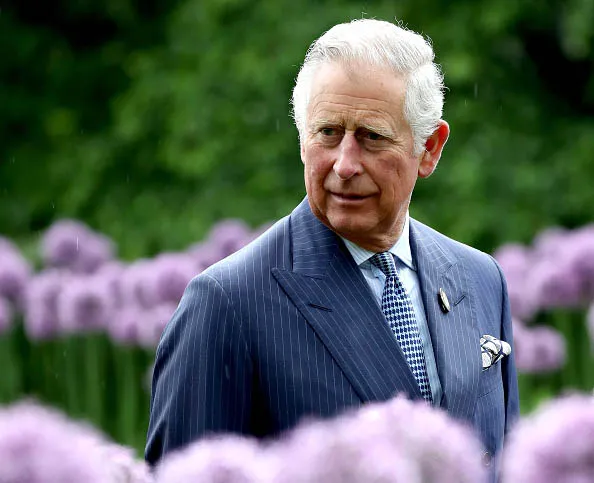
As we headed towards autumn, the UK was central to international news with the announcement of the death of Queen Elizabeth II on 8 September. The Queen was a great lover of gardens, and she was a regular attendee of the Chelsea Flower Show, visiting over 50 times in her lifetime.
With her death, we saw the ascension to the throne of King Charles III. King Charles is famed for his interest in gardens and the environment, so among the horticulture world there has been an air of interest as to what our new leader will mean for the industry.
Flockdown
From 7 November, the government announced that all poultry and captive birds needed to be kept indoors to stop the spread of avian flu, a move that was dubbed 'flockdown'.
This had a big impact on people keeping chickens and other domestic birds, so we spoke to Arthur Parkinson about the rules and how to keep chickens happy when under house arrest.
'Savannah' planned for North Devon coast
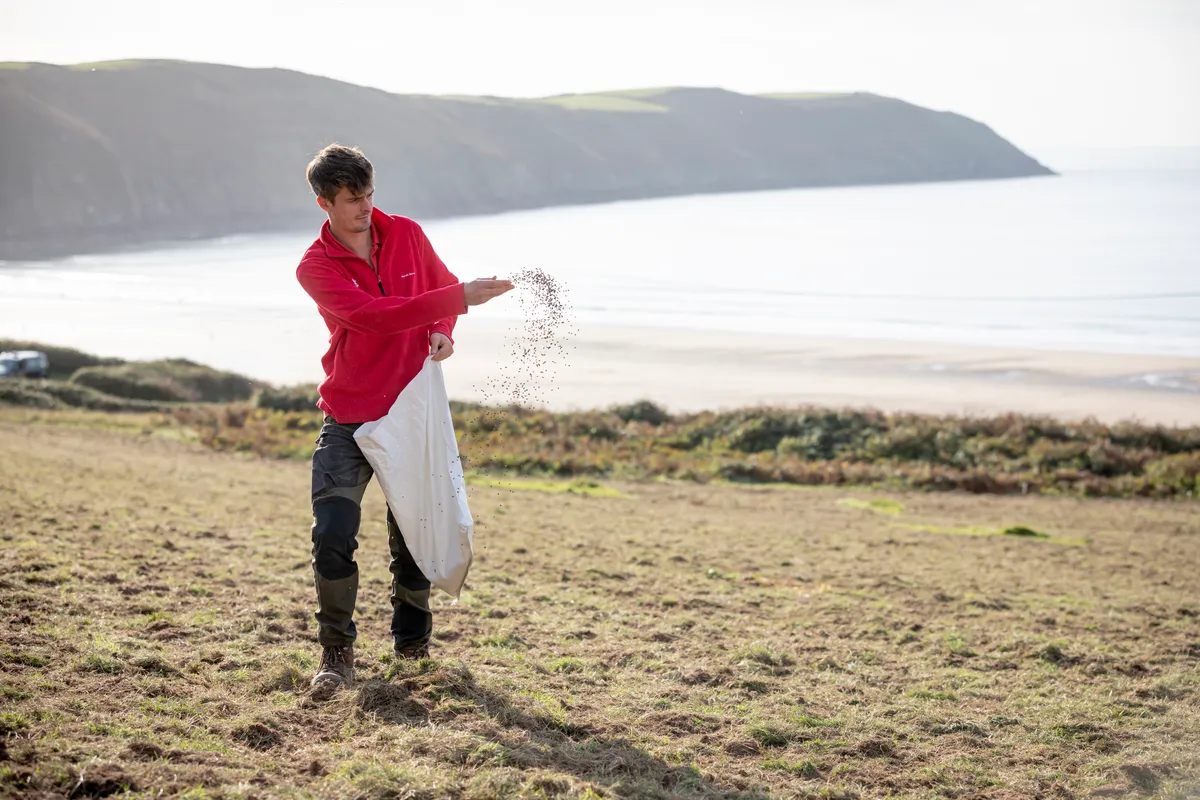
The National Trust announced their largest ever wildflower grassland project in November. In an effort to boost biodiversity and tackle the climate crisis, the conservation charity are creating a vast species-rich grassland 'savannah' habitat along the North Devon coast.
The climate crisis has been a central part of the conversation for gardeners and environmental groups this year. The sale of peat is still set to be banned in the UK from 2024; a move which is welcomed but will have potentially unknown consequences for the horticulture industry.
Dreaming of a white Christmas?
As we hurtle towards Christmas, gardens up and down the UK have been blanketed in snow. Gardens Illustrated readers shared pictures of their snow-covered gardens with us on Twitter, with some people getting in touch from as far away as Germany and Nevada.
Temperatures have plummeted and it looks as though we'll be closing the year on a chilly note, and what a year it's been!
